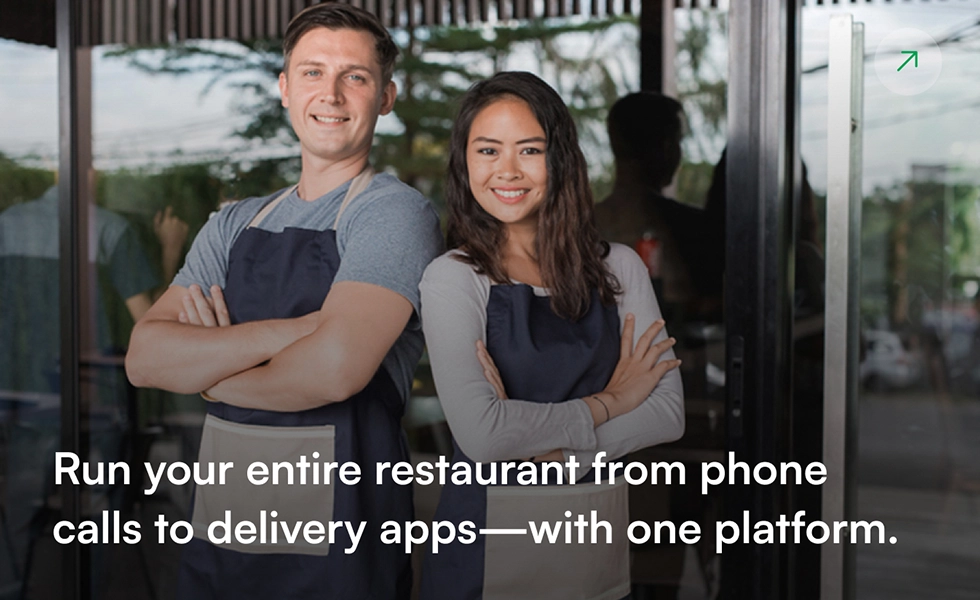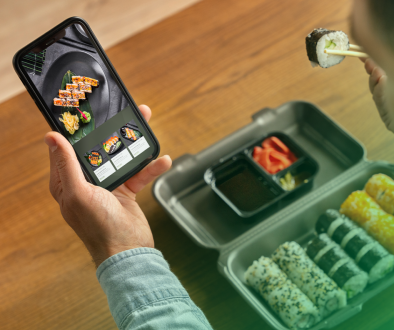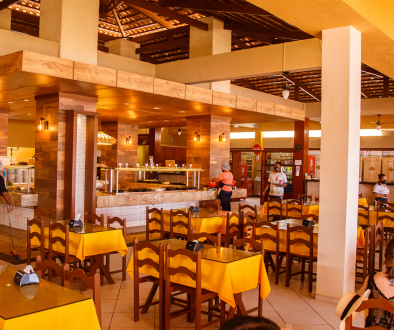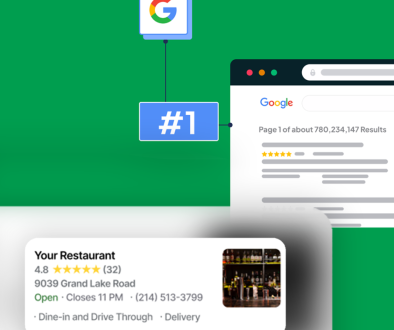The Future of Restaurant Industry – What to Expect in 2025
The restaurant industry is evolving faster than ever. Changing consumer expectations, technological advancements, and shifting market trends are redefining how restaurants operate. In 2025, the dining experience will look drastically different from what it is today. From AI-driven restaurant automation to digital-first ordering, sustainability initiatives, and virtual brands, restaurants must embrace these changes to stay relevant and competitive.
As customers seek more convenience, personalization, and efficiency, restaurants need to adapt. The traditional dine-in experience is no longer enough. Online ordering, contactless payments, and AI-driven recommendations are becoming the new standard. Furthermore, sustainability is no longer just an option—it’s an expectation. Customers are choosing eco-friendly dining options, preferring restaurants that use sustainable packaging, reduce food waste, and support local sourcing.
To keep up with these rapid changes, restaurants need the right tools and technology. This is where Restro comes in. Restro’s innovative solutions help restaurants navigate the evolving landscape with ease. Whether it’s streamlining operations with AI, optimizing online orders, managing multiple marketplaces, or enhancing customer engagement, Restro provides everything restaurants need at one simple pricing. In this guide, we will explore the biggest restaurant industry trends shaping the future of the restaurant industry in 2025 and how Restro’s cutting-edge tools can help restaurant owners adapt seamlessly and maximize growth.
1. The Rise of AI and Automation in Restaurants
Artificial Intelligence (AI) and Restaurant automation are transforming the restaurant industry. By 2025, AI-driven technologies will handle everything from order management to customer interactions. Restaurants that leverage AI will operate more efficiently and provide a smoother experience for customers.
- AI-Driven Order Management: AI-powered systems can predict demand, optimize staffing, and reduce waste by analyzing sales data. This leads to better decision-making and cost savings.
- Smart Inventory Tracking: Automated inventory systems prevent stockouts and overstocking, ensuring restaurants maintain optimal supply levels.
- Self-Service Kiosks & Robotic Assistants: Many fast-casual and quick-service restaurants are implementing self-service kiosks to reduce wait times and improve efficiency. Some high-tech kitchens are even adopting robotic chefs to prepare meals with precision and consistency.
- AI-Powered Menu Personalization: Restaurants can offer customized recommendations based on customer preferences, increasing upselling opportunities.
2. The Shift to Digital-First Ordering & Contactless Dining
The demand for convenience is driving the shift towards digital-first ordering. Customers prefer seamless, contactless experiences that minimize friction and maximize speed.
- Mobile Apps & QR Code Menus: More restaurants are replacing physical menus with QR codes, allowing customers to browse menus, place orders, and make payments from their smartphones.
- Digital Payment Solutions: Cashless transactions, including mobile wallets and contactless payments, are becoming the norm.
- Online Ordering & Delivery Growth: The reliance on food delivery services is skyrocketing. Restaurants need integrated systems to manage multiple platforms without the hassle.
- Drive-Thru Innovations: AI-powered drive-thrus, voice ordering, and automated food preparation are improving the speed and accuracy of fast-food service.
How Restro Helps: Restro’s online ordering system and digital solutions simplify the ordering process, making it easy for customers to place orders and for restaurants to manage them efficiently.
3. Sustainability & Eco-Friendly Practices as a Standard
Consumers are prioritizing sustainability, and restaurants must adapt to meet this growing demand.
- Sustainable Packaging: The use of biodegradable, compostable, and reusable packaging is becoming essential.
- Zero-Waste Kitchens: Restaurants are implementing waste reduction strategies like composting and ingredient optimization.
- Locally Sourced Ingredients: Supporting local farmers and suppliers reduces carbon footprints and enhances food quality.
- Energy Efficiency: Restaurants are investing in energy-efficient appliances to cut costs and lower environmental impact.
4. Personalization & Customer Engagement Through Data
Data-driven marketing is reshaping how restaurants connect with customers.
- Loyalty Programs & Personalized Offers: AI-powered insights help restaurants create personalized discounts and promotions that drive repeat business.
- Customer Preferences & Ordering History: Restaurants can tailor menu recommendations based on individual customer behavior.
- Targeted Email & SMS Campaigns: Automated marketing campaigns enhance customer engagement and boost sales.
How Restro Helps: Restro’s CRM and marketing tools provide restaurants with valuable customer insights, helping them build stronger relationships and increase retention rates.
5. The Expansion of Virtual Brands & Cloud Kitchens
The rise of ghost kitchens and virtual brands is revolutionizing the industry.
- Ghost Kitchens & Delivery-Only Brands: More restaurants are shifting towards delivery-focused business models, reducing overhead costs while maximizing reach.
- Multiple Revenue Streams: Restaurants can create multiple online brands under one kitchen, reaching different customer segments.
- Seamless Marketplace Integration: Managing multiple food delivery platforms from a single interface streamlines operations.
How Restro Helps: Restro’s Marketplace 360 makes it easy to manage multiple brands and platforms, ensuring restaurants maximize their online presence.
6. Social Media & Influencer Marketing for Restaurants
Social media is a game-changer for restaurant marketing.
- Food Influencers & Viral Restaurant industry trends: Platforms like TikTok and Instagram play a significant role in shaping restaurant industry trends and attracting new customers.
- User-Generated Content: Restaurants benefit from customer reviews, photos, and social media check-ins.
- AI-Generated Marketing Strategies: AI-driven analytics help restaurants create high-performing social media campaigns.
How Restro Helps: Restro’s social media marketing will help restaurants plan social media content, ensuring consistent and impactful engagement.
Preparing for the Future of Restaurant Industry with Restro
The Future of restaurant industry is on the brink of major transformations in 2025. From AI-powered restaurant automation and digital ordering to sustainability, personalization, virtual brands, and social media marketing, restaurants must embrace these changes to stay ahead.
Restro provides innovative solutions that help restaurant owners navigate these changes effortlessly. Whether it’s streamlining operations, optimizing customer engagement, or managing multiple online marketplaces, Restro equips restaurants with the tools they need to thrive in 2025 and beyond.
Are you ready to future-proof your restaurant? Join Restro today and take your restaurant to the next level!




